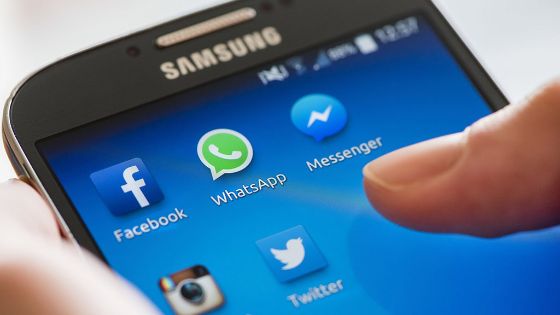
How Facebook verification badge is sold and used for criminal activities in Somalia

MOGADISHU (HORN OBSERVER) A tech cartel group operating as government officials have been selling Facebook Verification Badge to numerous entities including those known to have run suspected criminal activities in the country, according to an investigation carried out by Horn Observer.
Using government-issued emails and fake identities, the group will charge a cost of $500 to $1000 for one Facebook's blue badge inside Somalia. This has now become the point of concern for the local rights groups who worry about the risks of physical violence and online threats during the country's general elections later this year.
"You can discus on a verification costing through messaging. Don’t be worried seeing this service price. We have all required legitimate things to do this including an official government email and Identification Documents such as Service and Diplomatic Passports," said a member of this group approached by Horn Observer during this investigation.
Horn Observer has managed to collect some of Facebook Pages who bought the Facebook's prestigious Blue Badge.
"People want recognition even if they are doing illegal business. We don't need any information from them and we don't care about what they are doing," the member said.
The low profile cartel group operate and manage numerous identities online. At one instance, they claim to be government officials or working in a certain government department through a forged documentation. Another time use the same identity but with different names without attracting any suspicion from Facebook's security team.
A local group that claims to sell kidnaped children, another one publicly posts a video clip of young woman as a sex slave for auction while a third one even threatens to kill critics citing the holy Quran.
"Political groups, criminals and businesses want verified pages so that they can post their material there. Facebook will nit detect because of language barrier," a security technologist, Abdirahman Hassan Omar said "Facebook claims to have got a community moderator and has got translators including Somali language, but it clearly shows how it failed to detect the poisonous and dangerous activities in Somalia."
Mr. Omar says it is only enough paying several hundred dollars to have a Facebook page that is verified to make it more authentic "and do what ever you want without checking whether it is illegal or harmful".
ELECTION CAMPAIGNS
Ahead of the hugely disputed election, rights advocates and journalists had to contend with online harassment, cyber-bullying, toxic social media–and fear and uncertainty over whether the digital threats could become physical attacks.
In October, Somalia-based network for Free Expression and Human Rights (FEHRIN) warned that social media platforms such as Facebook and Twitter could become a platform to foment division, create hatred and incite violence in Somalia during this election cycle.
"Facebook seems not to be able to counter or prevent criminal or dangerous groups from using its platform for activities that could harm the lives of key people including human rights defenders and journalists," Ahmed Mohamed Adan, FEHRIN's director for human rights and free expression said.
In February, Amnesty International accused Facebook's disabling of Somalia-based journalists' accounts compromises their freedom of expression. It has urged Facebook to ensure it is not manipulated by the Somalia authorities to undermine the right to freedom of expression, especially ahead of the elections later this year.
Facebook never investigated the matter. Last week Horn Observer wrote to Facebook's East Africa unit but did not receive any response back.
It can be described that Facebook has unwittingly entered a country new to the digital era and still emerging from decades of conflict, all the while plagued by political and social divisions.
But now, with or without knowingly, Facebook is providing legitimacy to illegal and dangerous activities in Somalia that, if not stopped, could put lives in danger.
Leave a comment
- Popular
- Rated
- Commented
04/11/2021 - 11:05:02
12/03/2023 - 22:58:08
22/01/2023 - 11:24:06
13/12/2015 - 09:27:08
01/03/2021 - 09:00:37
Opinions
17/04/2024 - 22:46:39
08/03/2024 - 02:04:01
Politics
22/04/2024 - 15:18:30
17/04/2024 - 22:46:39
Terror Watch
28/04/2024 - 02:39:40
28/04/2024 - 01:34:19
Press Releases
18/04/2024 - 21:29:03
13/04/2024 - 10:40:06
 0
0 


































How Facebook verification badge is sold and used for criminal activities in Somalia
MOGADISHU (HORN OBSERVER) A tech cartel group operating as government officials have been selling Facebook Verification Badge to numerous entities including those known to have run suspected criminal activities in the country, according to an investi